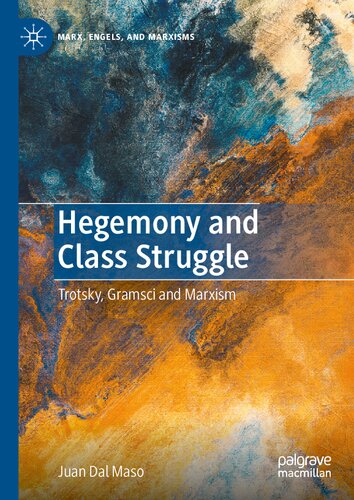

Most ebook files are in PDF format, so you can easily read them using various software such as Foxit Reader or directly on the Google Chrome browser.
Some ebook files are released by publishers in other formats such as .awz, .mobi, .epub, .fb2, etc. You may need to install specific software to read these formats on mobile/PC, such as Calibre.
Please read the tutorial at this link: https://ebookbell.com/faq
We offer FREE conversion to the popular formats you request; however, this may take some time. Therefore, right after payment, please email us, and we will try to provide the service as quickly as possible.
For some exceptional file formats or broken links (if any), please refrain from opening any disputes. Instead, email us first, and we will try to assist within a maximum of 6 hours.
EbookBell Team

4.7
76 reviewsLeon Trotsky and Antonio Gramsci are two of the most important Marxist thinkers of the 20th century. This book explores the similarities and the differences between their philosophical and political theories. The first and second chapters deal with a still under-investigated aspect of Trotsky’s thought, i.e. his reflections on the issue of hegemony. The third chapter focuses on Gramsci’s critique of Trotsky in his Prison Notebooks, analysing Gramsci’s knowledge of Trotsky’s positions as well as the scope and limits of Gramsci’s critique. The fourth chapter consists of a critical rereading of Perry Anderson's essay Antinomies of Antonio Gramsci, originally published in 1976 and republished in 2017 and an analysis of the book Gramsci and Trotsky in the Shadow of Stalinism by Emanuele Saccarelli. The result is an investigation that offers new insight into both Trotsky’s and Gramsci’s thought, while proposing a new point of view from which to interpret revolutionary theory and strategy in the contemporary scenario. One of the main topics addressed throughout the three essays is the specific position of the problem of hegemony in a theory of permanent revolution, demonstrating that Trotsky had a particular understanding of the question of hegemony and that Gramsci, in turn, introduced a concept of hegemony that is closely associated with an idea of permanent revolution, such that the dynamics of the relationship between democratic struggles and socialist struggles presented in both theories are very similar.